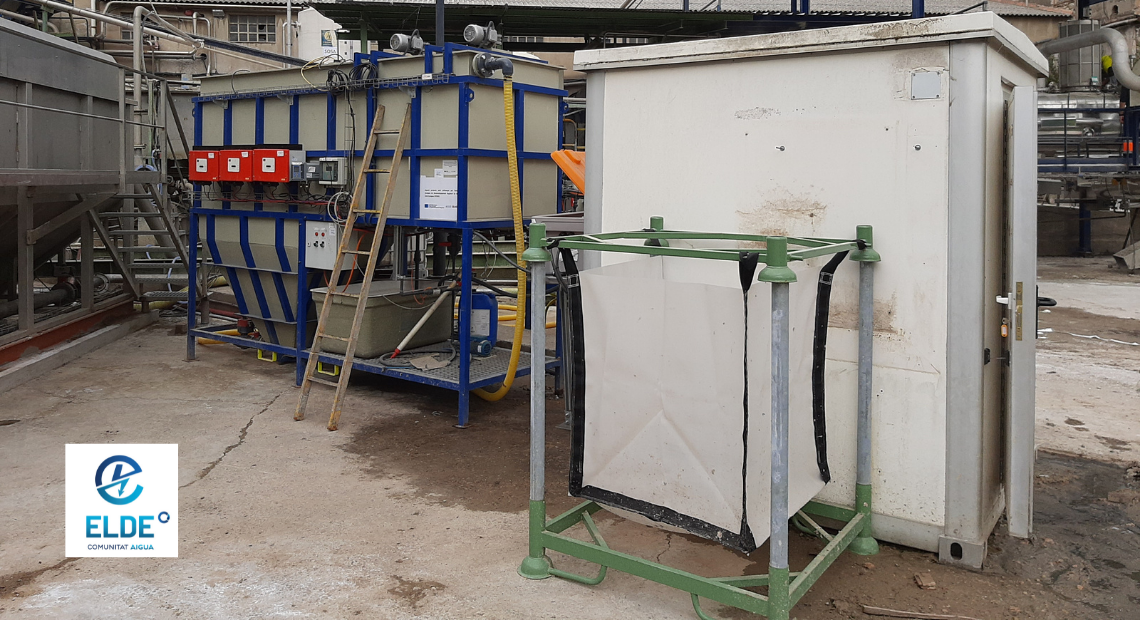In industrial wastewater, the great variability of its polluting parameters makes it difficult to treat. In general, industrial effluents contain poorly biodegradable compounds, and its presence affects negatively the proper functioning of biological treatments. In addition, these effluents usually have a high salinity which cannot be removed by traditional methods. The research for a treatment applicable to as many effluents as possible, regardless of the industrial sector, that does not consume chemical reagents and that does not produce any waste has led to the ELDE project (“Electro‐depuració d’aigües residuals industrials: viabilitat tècnica, ambiental i econòmica” in Catalan)
In the framework of ELDE, innovative technologies based on electro purification techniques to reduce the costs associated with the management and treatment of residual effluents from the paper, chemical and tanning industries were tested successfully. It should be noted that in general electro depuration technologies are characterized by energy-intensive consumption. Therefore, one of the objectives of the project was to optimize the energy costs of the treatments.
The Energy Systems Analytics group and Power Systems group at IREC contributed to build an electrochemical treatment pilot to treat 1 m3/h applicable to the paper industry to improve the wastewater of the industrial process reducing organic matter by 25%. More specifically, the main contributions were the design and implementation of the pilot plant sensing and control system through a PLC and a SCADA. IREC also contributed to improve the energy self-sufficiency of the pilot and optimizing the energy costs of the treatment with the implementation of an Energy Management System (EMS) to manage the solar photovoltaic panels and the lithium-ion batteries installed in the pilot. The EMS was able to manage the charging and discharging of the battery optimally, reducing the operational energy costs.
The ELDE project was one of the projects of the RIS3CAT Water Community, involving IREC, the Polytechnic University of Catalonia (UPC), Eurecat and 3 SMEs: Waterlogies, CIM Aigua and Lavola. This project is co-financed by the European Regional Development Fund of the European Union in the framework of the ERDF Operational Programme Catalonia 2014-2020 and the support of ACCIO with a budget of 1.7 million euros.




